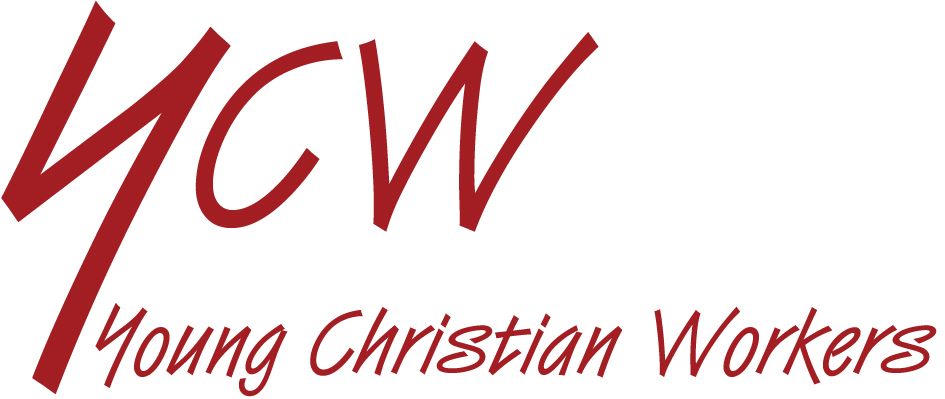Last weekend Marc Besford, National President, attended the 2021 conference of the National Justice and Peace Network of England and Wales (NJPN). The chant: “We come together for our common home”, ran through the liturgies at this year’s conference. It attracted 200 participants to Derbyshire for the first face to face meeting – albeit through masks - of Justice and Peace activists from every diocese and Movements since the pandemic started. The mantra came from a new hymn written by liturgical musician Marty Haugen especially for the conference, which took the theme, ‘2021: Moment of Truth - Action for Life on Earth’.
A liturgy group, led by Colette Joyce, Justice and Peace Fieldworker in Westminster Diocese, and including pianist Christine Allen, Director of CAFOD, and Columban co-worker James Trewby on the clarinet reflected the broad range of participants seeking to mobilise for the November COP26 climate talks in Glasgow. Also, to promote ecological conversion and action in the Church and wider society, all inspired by the papal encyclical Laudato Si’.
Marc Besford with representatives of Leeds Justice and Peace and SPARK! Social Justice
Conference chair Christine Allen reminded that there are now 100 days to COP26 and CAFOD is working with the Global Catholic Climate Movement (GCCM) and faith leaders to lobby for global warming to be kept below 1.5 degrees. She reported that CAFOD, “amplifies voices around the world in climate vulnerable situations”. Bishop John Arnold of Salford, lead bishop on the environment for England and Wales, said Churches and faiths are making clear they want action and “we can mend our common home”. He has been in zooms with COP26 president Alok Sharma MP, “trying to speak loudly to politicians”. In the conference Mass he thanked NJPN “for who you are, what you stand for and what you want, and for keeping Pope Francis as an inspiration in our lives and actions.”
“It is important to acknowledge the truth of the crisis of our common home,” Fr P. Joshtrom Isaac Kureethadam SDB, Coordinator of the 'Ecology and Creation' sector of the Vatican Dicastery for Promoting Integral Human Development, told the conference in a video message. He said, “the planet is crying out and the poor are crying out; we need to open our ears and hear these painful cries;” feeling there is hope and that “this could be a watershed, a moment of change.” He told NJPN that, “you can count on the support of our Dicastery as we work together under the inspiration of the Holy Spirit as families, parishes, communities, and institutions, to heal and protect mother Earth.”
Keynote speaker Lorna Gold, Chair of the Board of the GCCM and author of ‘Climate Generation: Awakening to Our Children’s Future’, highlighted the “vibrant network of networks sustaining and nurturing ecological conversion right across the world” and turning Laudato Si’ “into a lived reality.” She applauded the role young people have played in stimulating climate action. “Young people have done more in two years than the rest of us have done over three decades” she said. Lorna felt the pandemic is teaching us that we are all connected to each other and to nature and what it means to act together to face a common threat. She felt Pope Francis’ vision of ecological conversion refers to “community conversion” and asked: “What if that process of community ecological conversion was to extend to the entire world of faith communities that still encompass 80% of the world’s population?”
Andy Atkins, head of Arocha UK, underlined how far Churches have come with programmes such as Live Simply, Eco Church, Eco Congregation, Climate Sunday and Fossil Fuel Divestment with Operation Noah. In fact, more than 5000 churches across the Christian denominations are registered with green schemes which “was unimaginable 30 years ago” but “we need to speed up.” He deplored the UK government’s loss of credibility to deal with the crises facing us. “At a time when the government says it is leading the world it has cut its aid budget and has opened the door to further fossil fuel development,” he lamented; “we should be saying ‘No More Fossil Fuel Exploitation’ in this country!” Lorna felt the 20 October announcement of fossil fuel divestment should include the 18 Catholic dioceses on England and Wales that have not yet announced divestment.
Fr Eamonn Mulcahy CSSp’s presentation on, ‘Let us dream together: Pope Francis’ Gospel Vision for an Integral Humanity’, considered criticisms of excessive anthropocentrism, consumerism and the technocratic paradigm - all themes taken from Laudato Si’. “We must be agents for healing and restoration” he said, “respecting every living creature and organism.”
Speaker Mark Rotherham, of the Northern Dioceses Environmental Group, felt it essential we transform our current economic system so that it promotes both social equality and environmental protection. “A good life-sustaining economy is about slowly down and recognising planetary boundaries” he said. He described the arms industry as “a huge shadow over our nation” and felt that we need to withdraw legitimacy from this draw on global resources and energy.
NJPN Chair Paul Southgate taught the conference a Navajo hymn ‘The world is so beautiful,’ and called on young people to feed in their primary concerns to the conference. Young university and school students told participants bluntly that they would like “less of fossil fuel companies pretending to care and schools accepting money from them”. They urged Catholics “to challenge the increasingly hostile policy towards refugees”, many of whom are victims of our UK actions in arms trading and raising global temperatures. One criticised “the detachment of our education system from real life” and the attitude that, “the more money we have the more successful we are.”
An enthusiastic action planning session at the end included dioceses forming Laudato Si’ Action Platform groups, organising Climate Sunday Masses, promoting the Live Simply programme in parishes and schools, and urging divestment from fossil fuels. Inspiration was taken from a presentation by Emma Gardner, new Head of Environment in Salford Diocese, who manages the flagship Laudato Si’ Centre and stimulates environmental action in Salford's parishes and schools. Columbans and Salesians are among those arranging a 24-hour prayer vigil on 5 November – during COP26 - that parishes can join, with intentions fed in from around the world. Many dioceses plan to connect with the Young Christian Climate Network (YCCN) pilgrimage to Glasgow and the Camino to COP26, setting off in September.
Around 15 workshops were available on such topics as: ‘Sustainable Development Goals,’ ‘Conflict and Environment,’ and a ‘Nature Explorer Walk’ with a botanist. Justice and Peace Scotland gave a briefing around ‘Attendance at COP26 – real or virtual’. Since 2005, NJPN has regularly taken an environmental theme for the national conference and its Environment Working Group, formed that year, helped plan the 2021 conference.
















